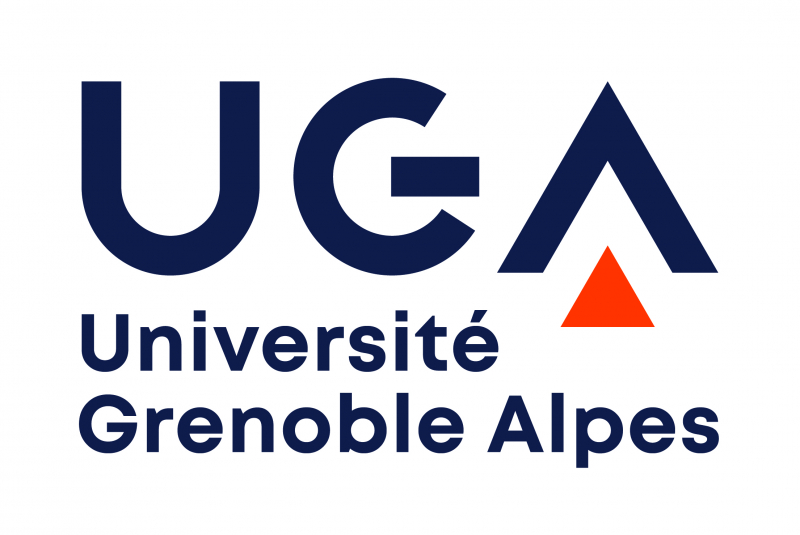Mercredi 26 juin 2024 - "Numérique et soutenabilité" - le nouvel axe Persyval 3
Rencontre autour du nouvel axe "Numérique et soutenabilité" de Persyval 3
Date : Mercredi 26 juin 2024 de 9h30 à 12h
Lieu : Bâtiment IMAG - Espace Colloques - salle Séminaire 2
Inscription : avant mercredi 19 juin 2024 :
https://evento.renater.fr/survey/futur-axe-numerique-et-soutenabilite-de-persyval-0rpi8tgm
La prochaine itération du Labex Persyval proposera un nouvel axe de recherche autour des **enjeux de soutenabilité liés au numérique** (voir cadrage ci-dessous),
qui vise à encourager une approche interdisciplinaire et systémique de la question et à créer un espace de recherche et de débat scientifique autour de ce sujet.
Pour faire connaissance et échanger sur ce qui nous rassemble et ce dont nous avons envie de débattre collectivement,
nous vous donnons rendez-vous le mercredi 26 juin 2024 de 9h30 à 12h au rez-de-chaussée du Bâtiment IMAG (salle de séminaire 2).
Cela permettra de préciser le cadrage de l'axe, de mieux identifier les attentes et les incompréhensions éventuelles, et bien-sûr d'amorcer la discussion.
Pour ce faire, nous vous invitons également à préparer si vous le souhaitez un pitch de sujet de recherche que vous envisageriez de proposer au prochain appel à projets fin 2024.
Concrètement, il s'agit de nous envoyer (à sophie.quinton@inria.fr et maud.rio@g-scop.eu) un court résumé de votre idée au plus tard le 24 juin, et de venir la présenter en une ou deux slides le 26 juin.
Merci d'indiquer votre participation éventuelle dans l'Evento d'ici le mercredi 19 juin 2024 :
https://evento.renater.fr/survey/futur-axe-numerique-et-soutenabilite-de-persyval-0rpi8tgm
Merci de vous signaler également si vous intéressé.e mais pas disponible le 26 juin.
Au plaisir de vous rencontrer,
Maud Rio et Sophie Quinton,
co-responsables de l'axe "numérique et soutenabilité"
Cadrage de l'axe "Numérique et soutenabilité"
Most experts agree that current trends in the growth of Information and Communication Technologies (ICT) are in contradiction with the objective set by the Paris Agreement to keep global warming well below 2 degrees Celsius compared to pre-industrial levels. To address this, research has focused so far on reducing the environmental impact resulting from the lifecycle of computing equipment, including networks, data centers and end-user devices. This reduction has been mainly driven by energy optimization during the use phase. Efficiency gains are however widely acknowledged to be counterbalanced by, or even contributing to the increase in global ICT use (due to numerous, well known rebound effects). Another particularly active field of research relating ICT and sustainability is the development of digital technologies to reduce the footprint of other economic sectors, notably agriculture and mobility. More generally, current research on the topic almost exclusively targets pathways to sustainability through technological development and so-called “green growth”, although the feasibility of decoupling is not established (see the WGIII contribution to the IPCC AR6).
There is, in contrast, very little work on devising alternatives to our current, unsustainable ICT solutions for other prospective scenarios. Such scenarios could, for example, explore digital degrowth, ICT in times of ressource shortages or recurring blackouts… These scenarios would raise new research questions such as how to compute within physical limits (which encompasses low tech and non-obsolescence issues and raises all kinds of questions related to programming, I/O, OS, memory management…), how digital technologies impact the resilience of our societies (and how to reduce potential risks due to them), etc. Beyond that, there is little knowledge about what ICT could look like in a sustainable future. The objective of the “ICT and sustainability” research axis of Persyval-Lab will be to foster research on these little explored research topics, with an emphasis on the clarification of uncertainties, hypotheses and arbitrations underlying the scenarios under study.
Such a research agenda is particularly challenging for a variety of reasons. First, it requires a systemic view on the interplay between ICT, the environment and society, at different time and geographic scales. This implies the need for disciplinary research in computer science to be put in a broader interdisciplinary perspective involving, for example, sociology, epistemology, economics, geography, urbanism, and political sciences. This is particularly obvious for scientific topics such as digital commons. Another challenge lies in the pervasiveness of ICT, which makes it difficult to understand the material implications and the indirect effects of a given technological choice. Finally, studying the impacts of, and coming up with solutions for ICT in a path toward sustainability requires a broad understanding of global stakes. A second objective of this research axis will thus be to build bridges between the computer science research community and other relevant research communities to develop the scientific basis required for a systemic approach to ICT and sustainability.


 Connexion
Connexion














